Alexis de Tocqueville Quotes



The surface of American society is covered with a layer of democratic paint, but from time to time one can see the old aristocratic colours breaking through.

The greatness of America lies not in being more enlightened than any other nation, but rather in her ability to repair her faults.
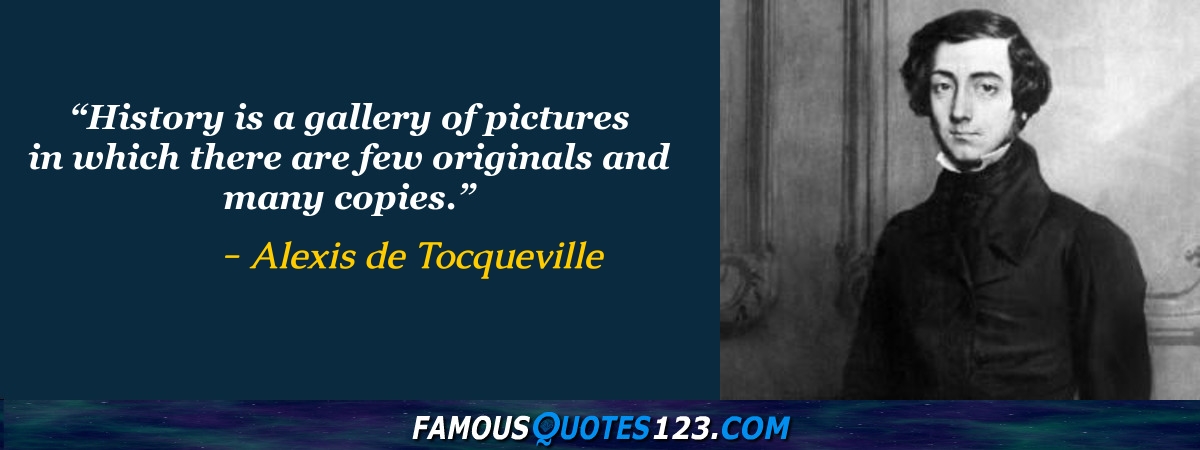
History is a gallery of pictures in which there are few originals and many copies.
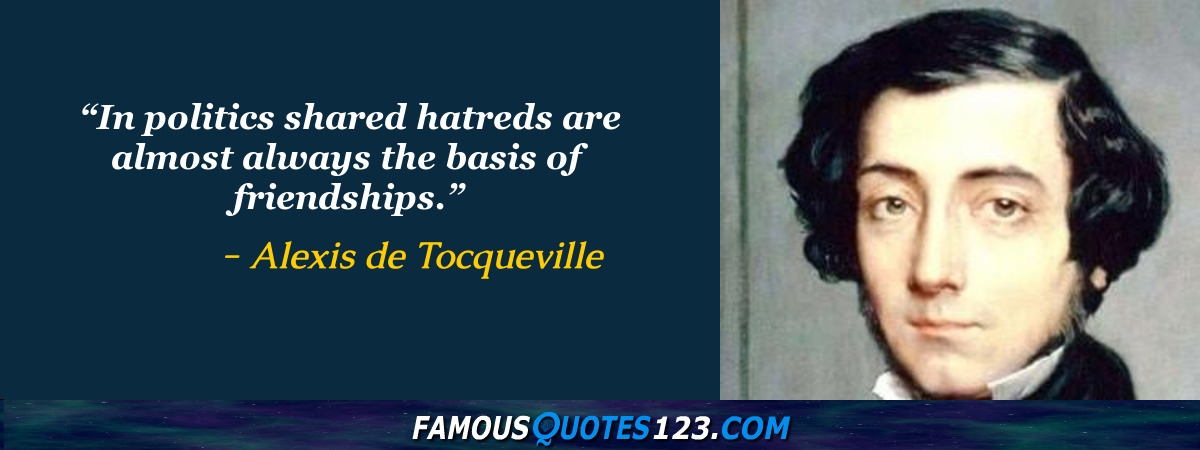
In politics shared hatreds are almost always the basis of friendships.

Americans are so enamored of equality that they would rather be equal in slavery than unequal in freedom.

There are many men of principle in both parties in America, but there is no party of principle.

When the past no longer illuminates the future, the spirit walks in darkness.

As one digs deeper into the national character of the Americans, one sees that they have sought the value of everything in this world only in the answer to this single question: how much money will it bring in?
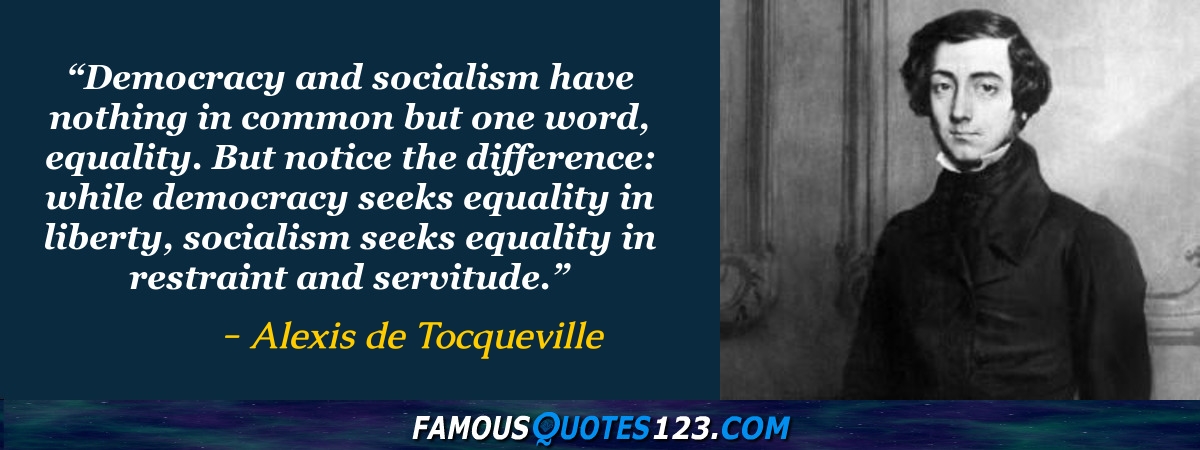
Democracy and socialism have nothing in common but one word, equality. But notice the difference: while democracy seeks equality in liberty, socialism seeks equality in restraint and servitude.
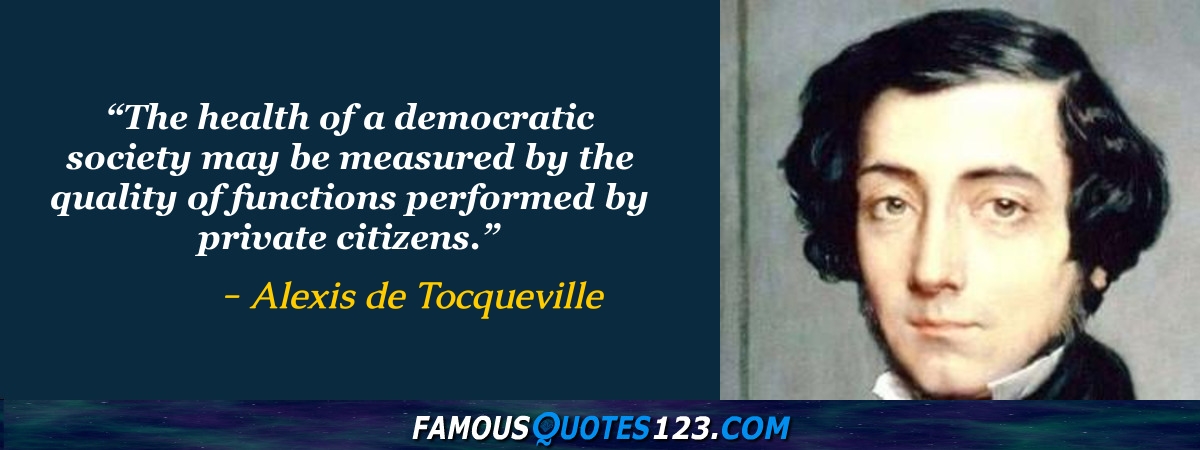
The health of a democratic society may be measured by the quality of functions performed by private citizens.

What is most important for democracy is not that great fortunes should not exist, but that great fortunes should not remain in the same hands. In that way there are rich men, but they do not form a class.

Liberty cannot be established without morality, nor morality without faith.

In no other country in the world is the love of property keener or more alert than in the United States, and nowhere else does the majority display less inclination toward doctrines which in any way threaten the way property is owned.

A democratic government is the only one in which those who vote for a tax can escape the obligation to pay it.
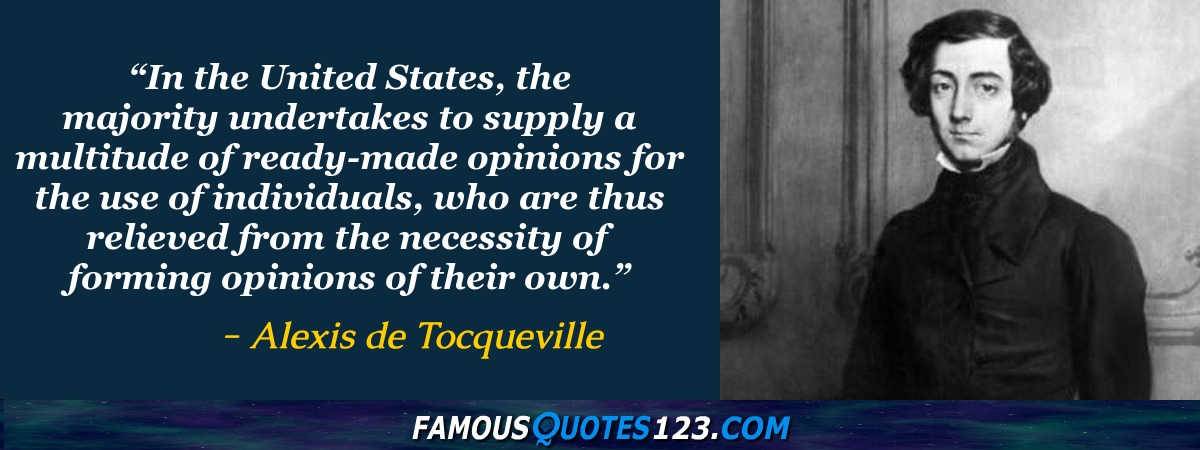
In the United States, the majority undertakes to supply a multitude of ready-made opinions for the use of individuals, who are thus relieved from the necessity of forming opinions of their own.
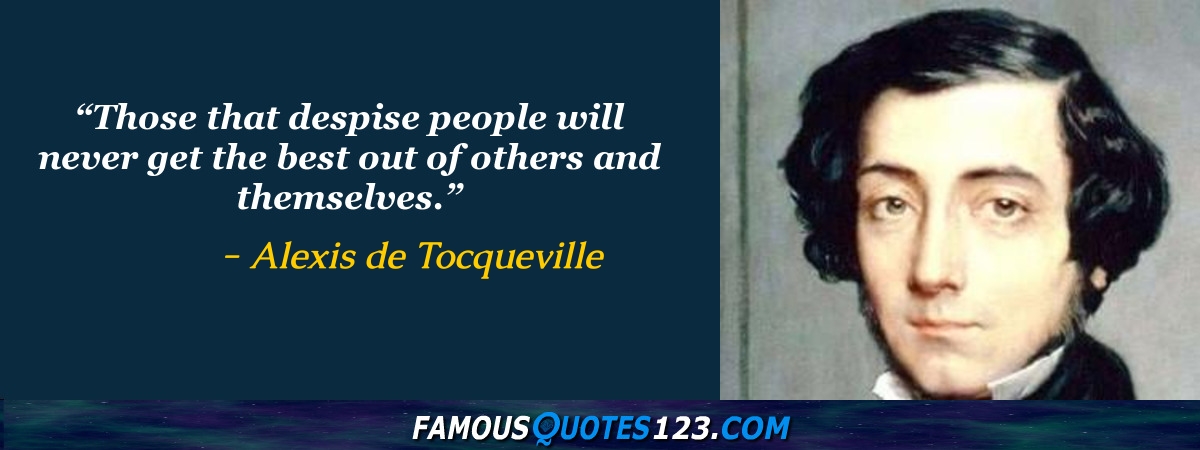
Those that despise people will never get the best out of others and themselves.
I cannot help fearing that men may reach a point where they look on every new theory as a danger, every innovation as a toilsome trouble, every social advance as a first step toward revolution, and that they may absolutely refuse to move at all.

We succeed in enterprises which demand the positive qualities we possess, but we excel in those which can also make use of our defects.
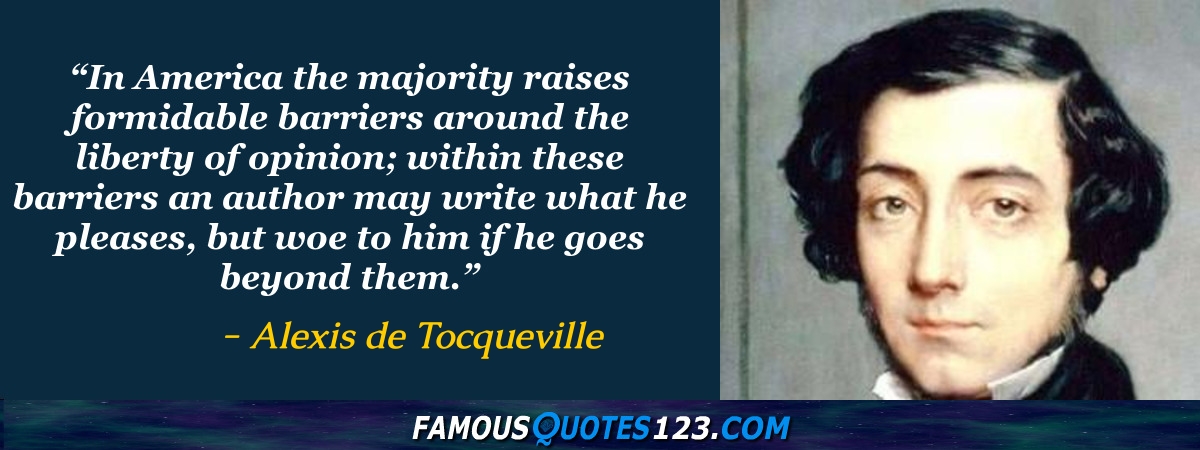
In America the majority raises formidable barriers around the liberty of opinion; within these barriers an author may write what he pleases, but woe to him if he goes beyond them.
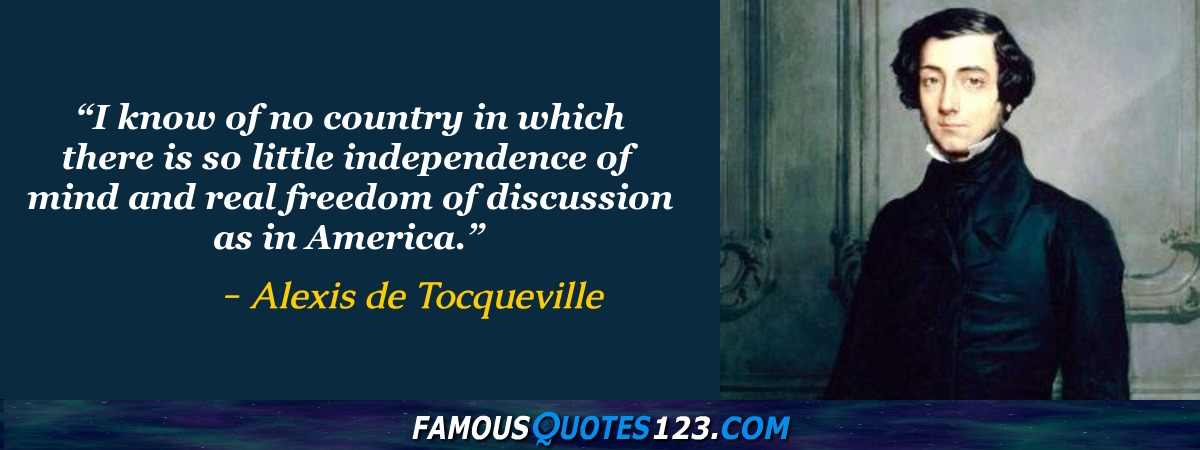
I know of no country in which there is so little independence of mind and real freedom of discussion as in America.
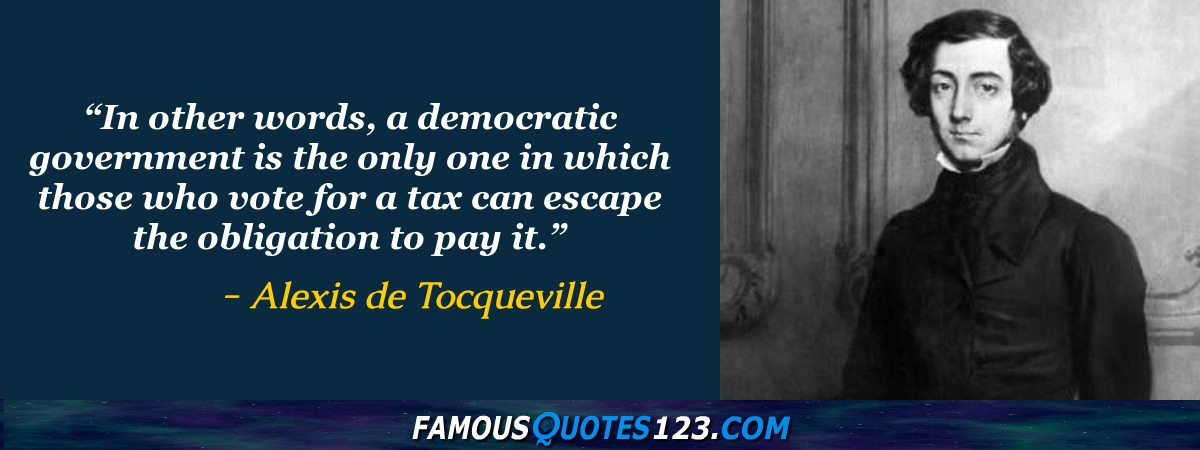
In other words, a democratic government is the only one in which those who vote for a tax can escape the obligation to pay it.
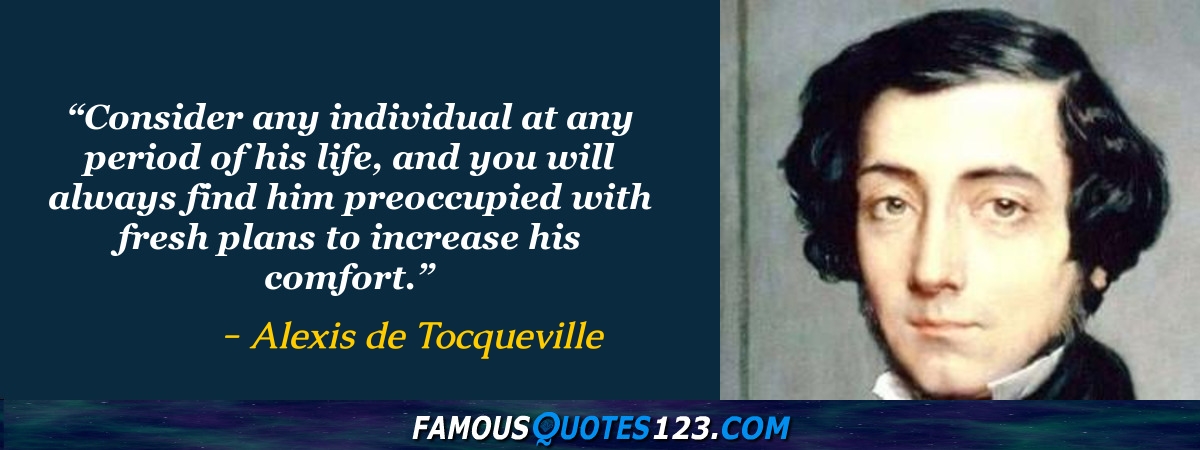
Consider any individual at any period of his life, and you will always find him preoccupied with fresh plans to increase his comfort.
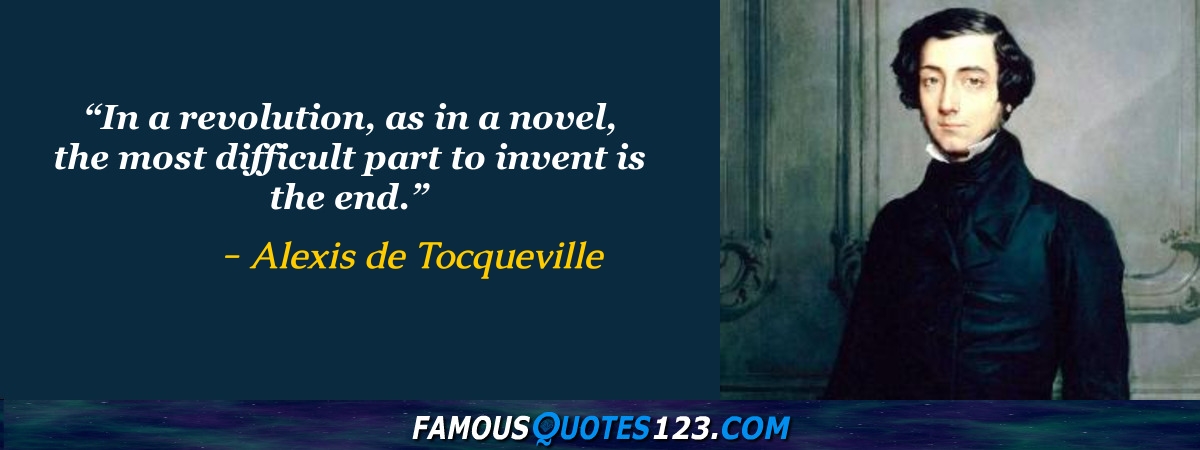
In a revolution, as in a novel, the most difficult part to invent is the end.
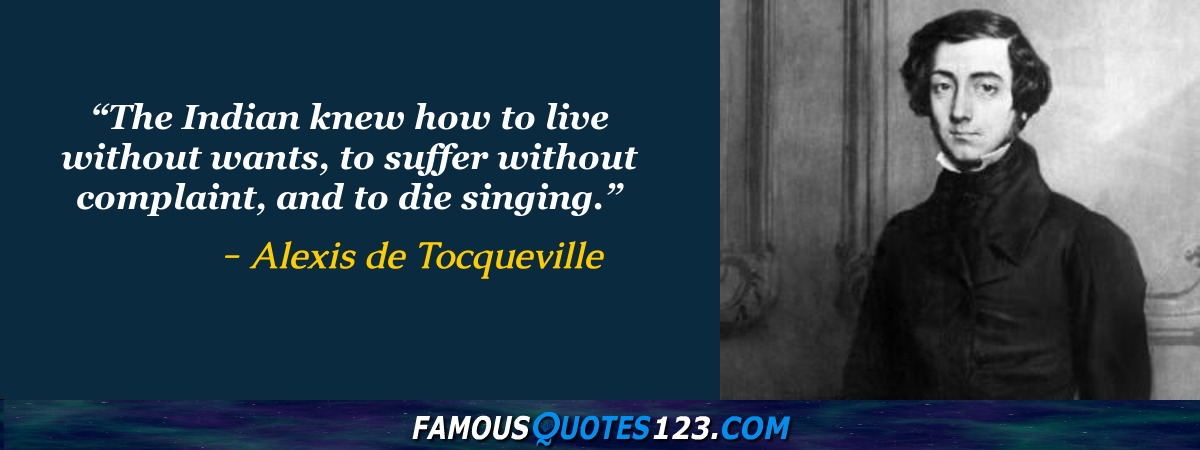
The Indian knew how to live without wants, to suffer without complaint, and to die singing.
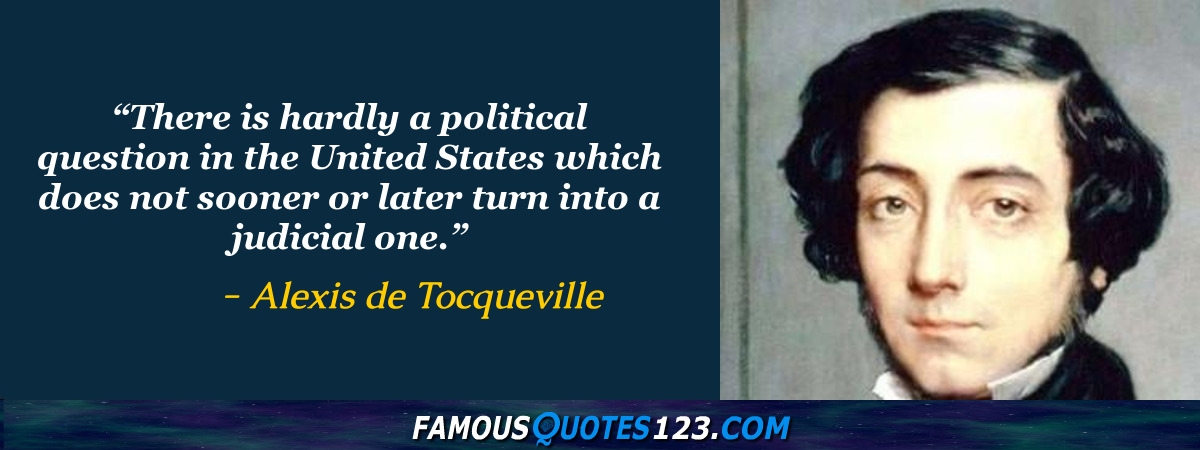
There is hardly a political question in the United States which does not sooner or later turn into a judicial one.
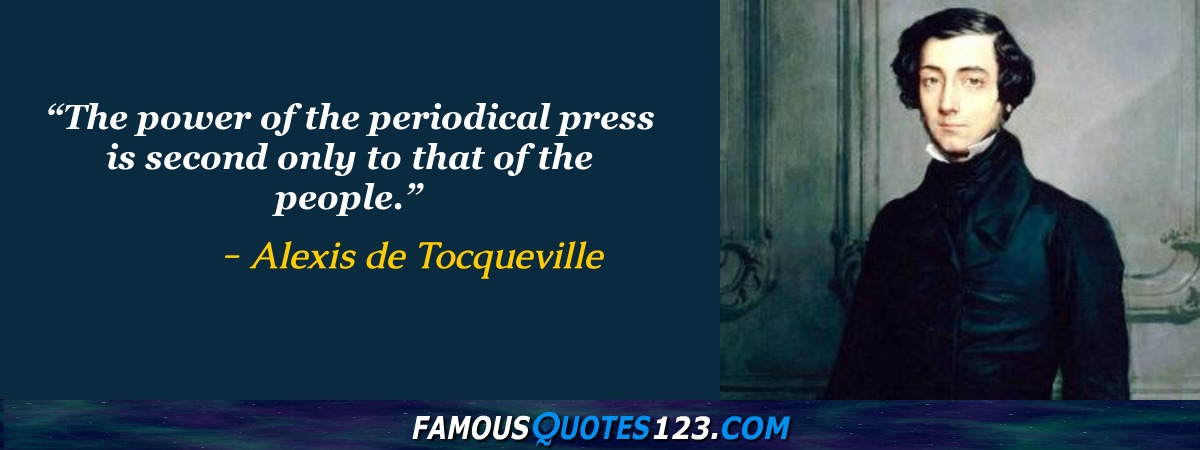
The power of the periodical press is second only to that of the people.
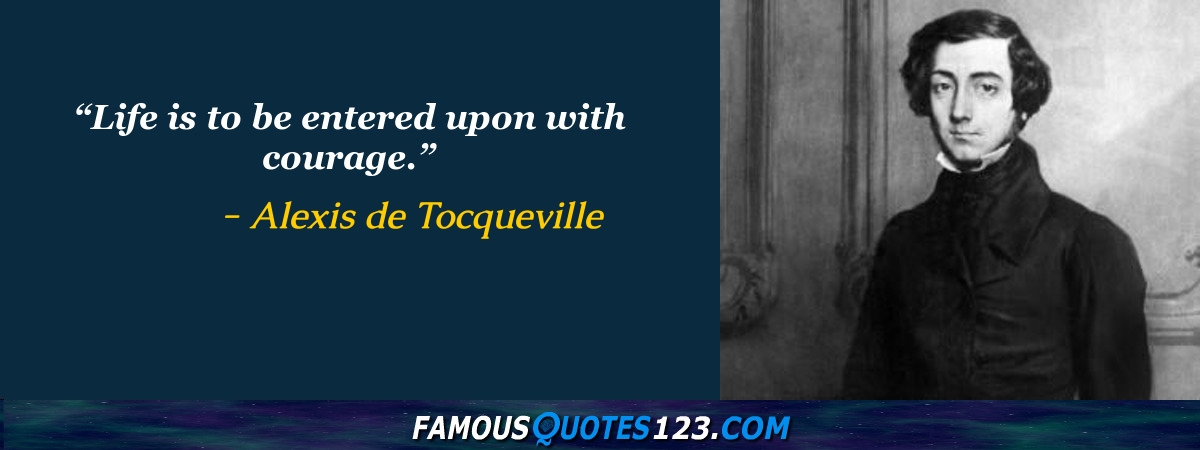
Life is to be entered upon with courage.
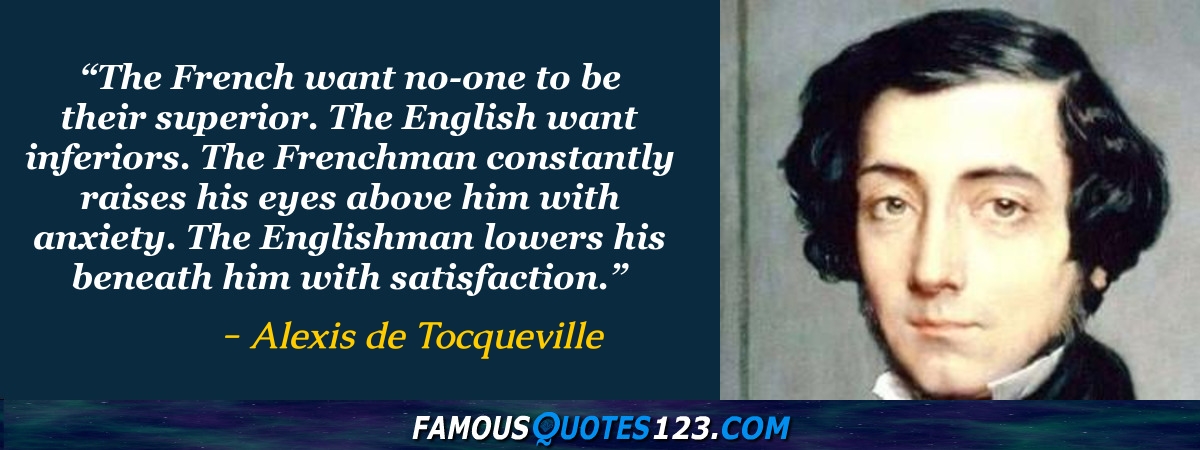
The French want no-one to be their superior. The English want inferiors. The Frenchman constantly raises his eyes above him with anxiety. The Englishman lowers his beneath him with satisfaction.
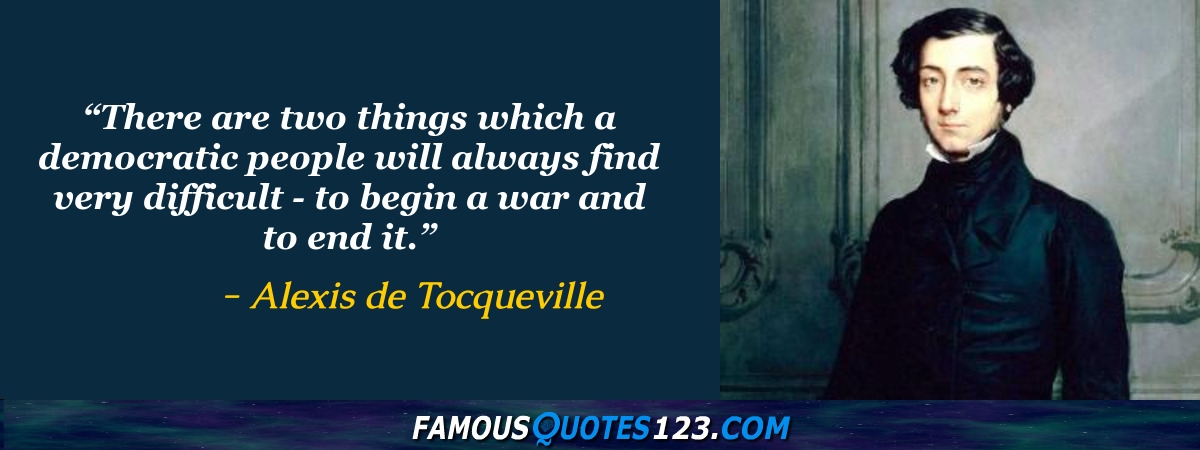
There are two things which a democratic people will always find very difficult - to begin a war and to end it.
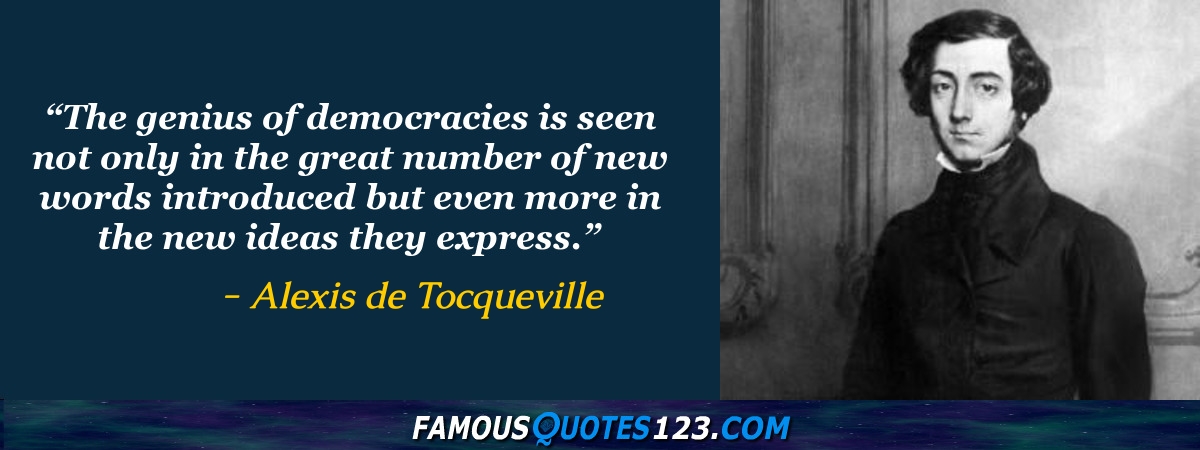
The genius of democracies is seen not only in the great number of new words introduced but even more in the new ideas they express.
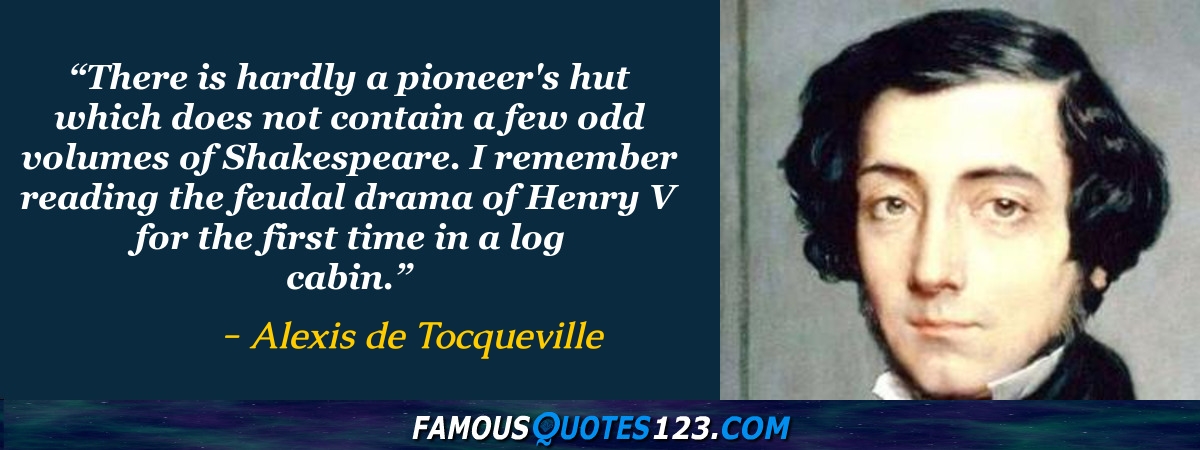
There is hardly a pioneer's hut which does not contain a few odd volumes of Shakespeare. I remember reading the feudal drama of Henry V for the first time in a log cabin.
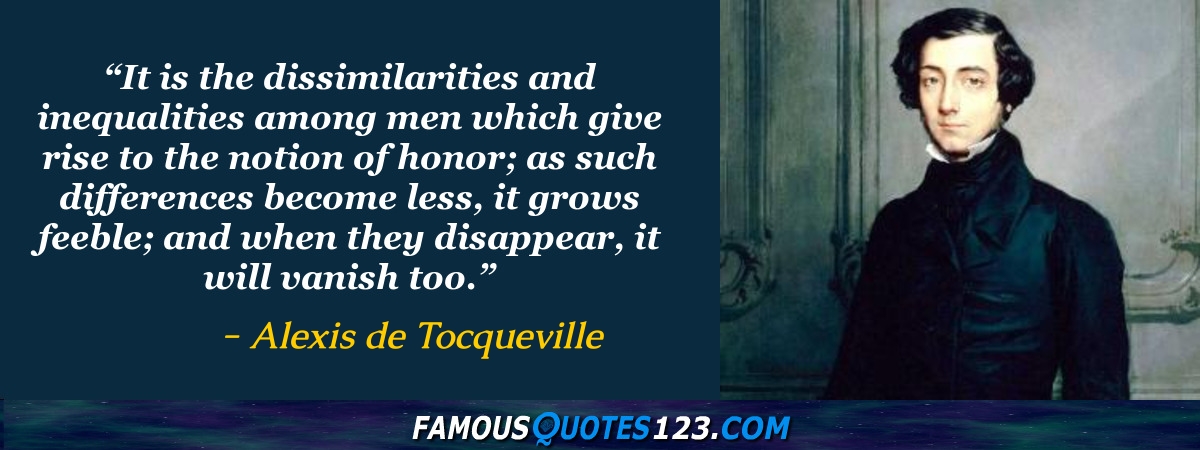
It is the dissimilarities and inequalities among men which give rise to the notion of honor; as such differences become less, it grows feeble; and when they disappear, it will vanish too.
No state of society or laws can render men so much alike but that education, fortune, and tastes will interpose some differences between them; and though different men may sometimes find it their interest to combine for the same purposes, they will never make it their pleasure.
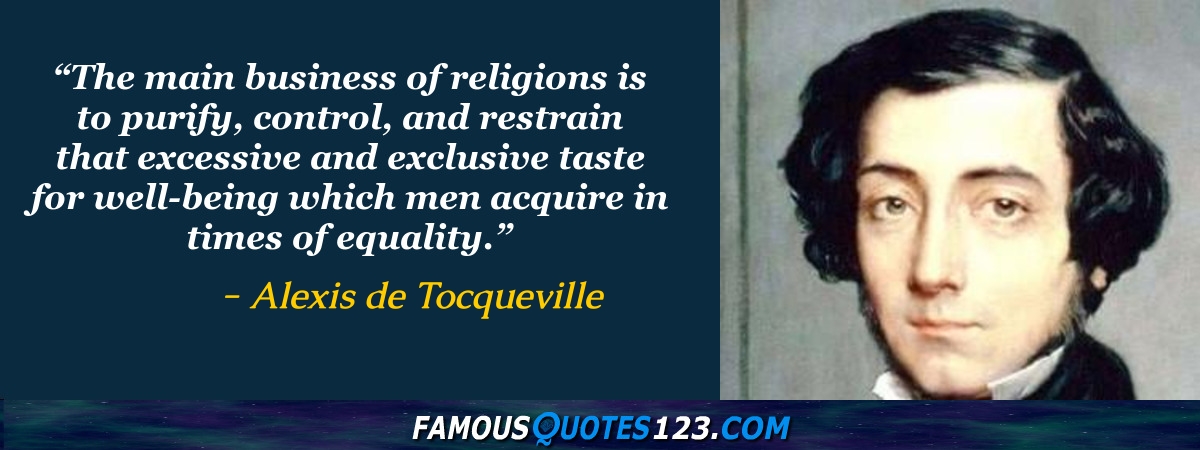
The main business of religions is to purify, control, and restrain that excessive and exclusive taste for well-being which men acquire in times of equality.
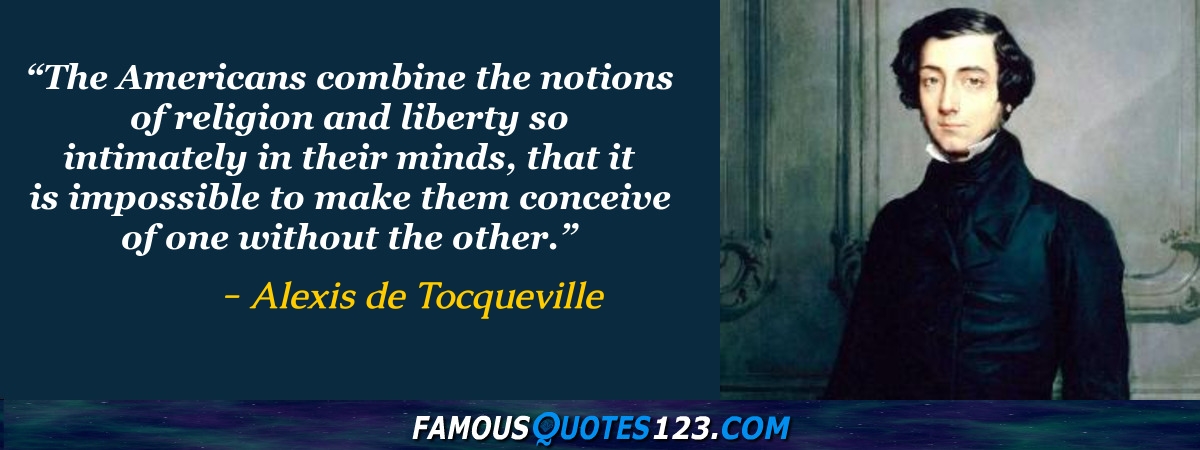
The Americans combine the notions of religion and liberty so intimately in their minds, that it is impossible to make them conceive of one without the other.
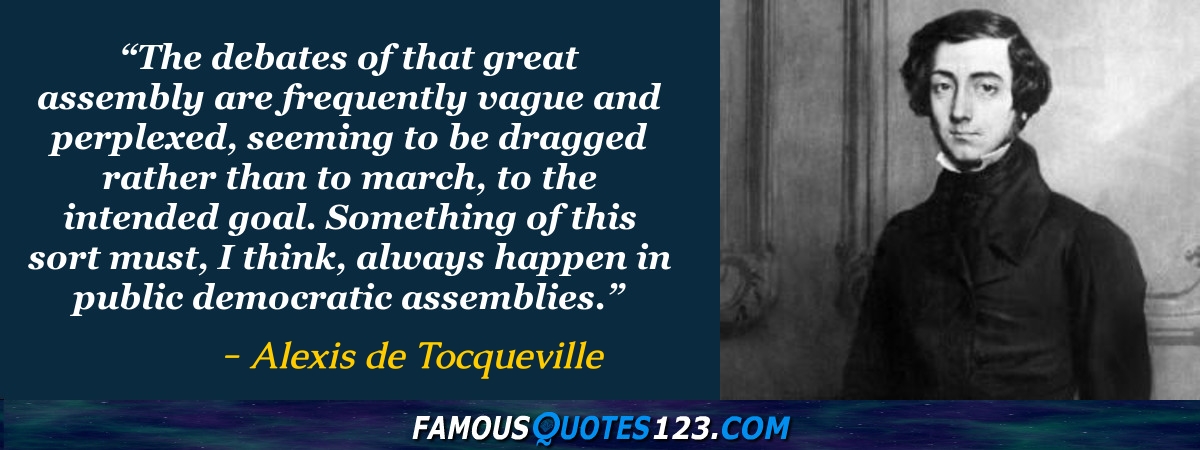
The debates of that great assembly are frequently vague and perplexed, seeming to be dragged rather than to march, to the intended goal. Something of this sort must, I think, always happen in public democratic assemblies.
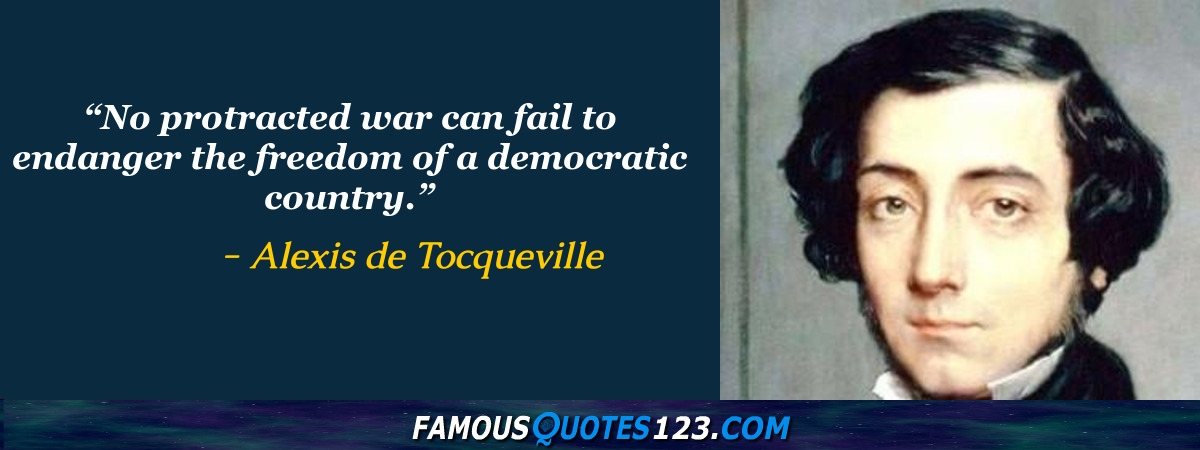
No protracted war can fail to endanger the freedom of a democratic country.
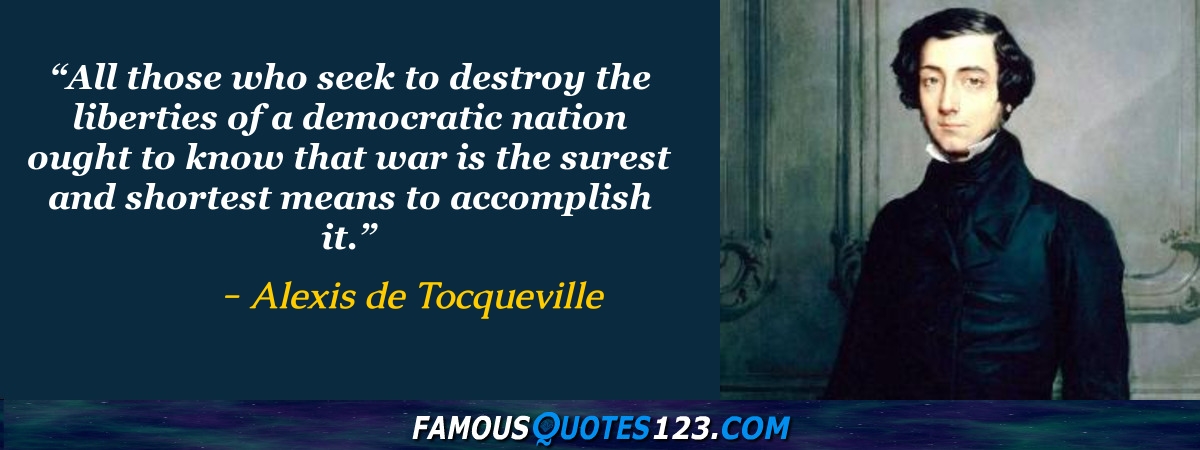
All those who seek to destroy the liberties of a democratic nation ought to know that war is the surest and shortest means to accomplish it.
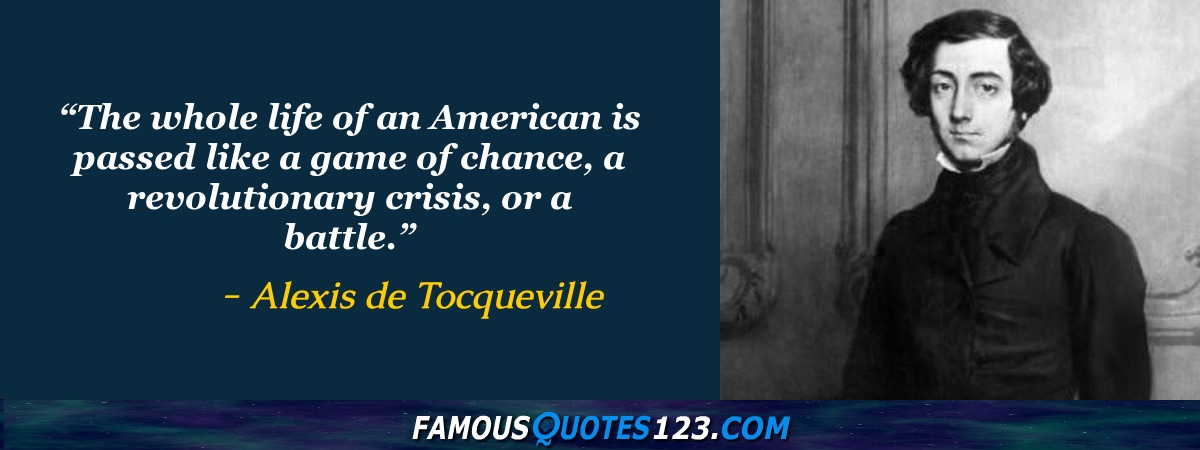
The whole life of an American is passed like a game of chance, a revolutionary crisis, or a battle.
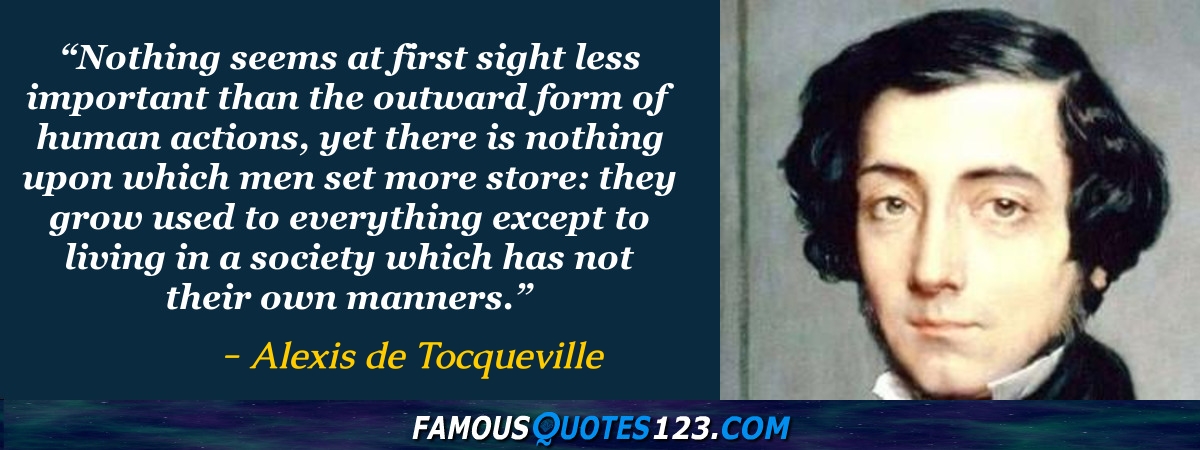
Nothing seems at first sight less important than the outward form of human actions, yet there is nothing upon which men set more store: they grow used to everything except to living in a society which has not their own manners.
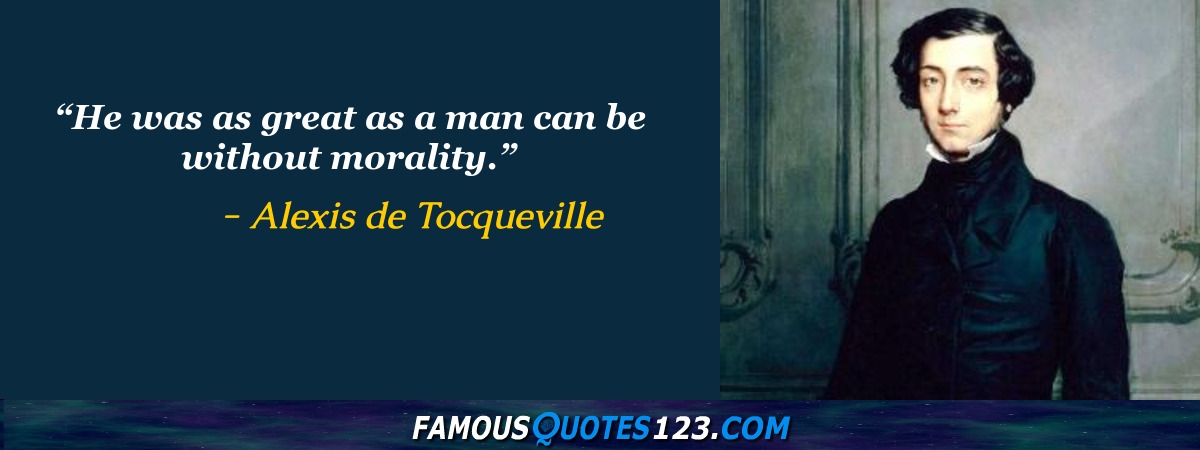
He was as great as a man can be without morality.
An American cannot converse, but he can discuss, and his talk falls into a dissertation. He speaks to you as if he was addressing a meeting; and if he should chance to become warm in the discussion, he will say 'Gentlemen' to the person with whom he is conversing.
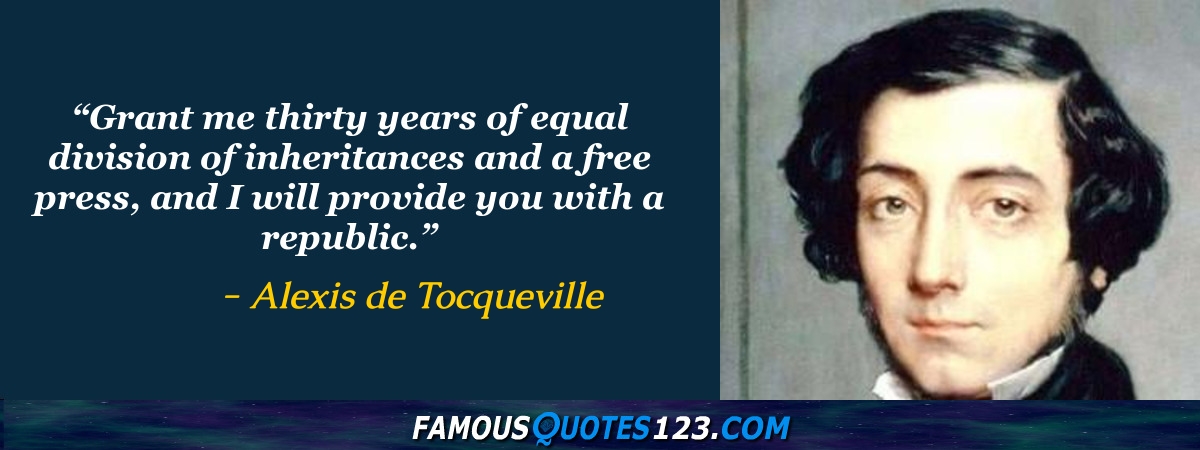
Grant me thirty years of equal division of inheritances and a free press, and I will provide you with a republic.